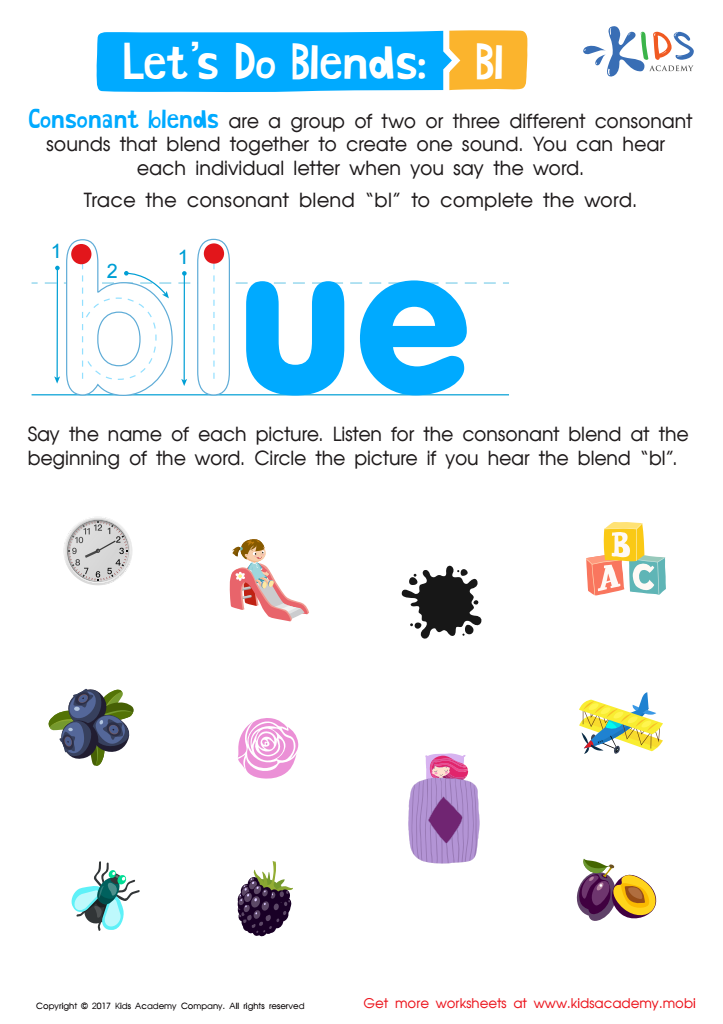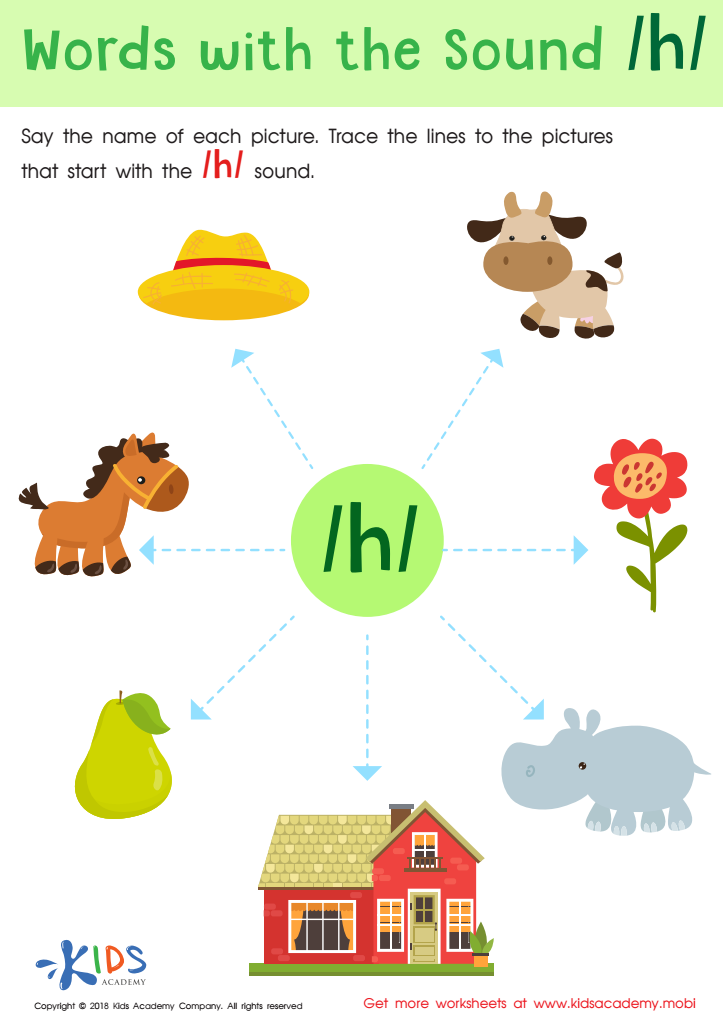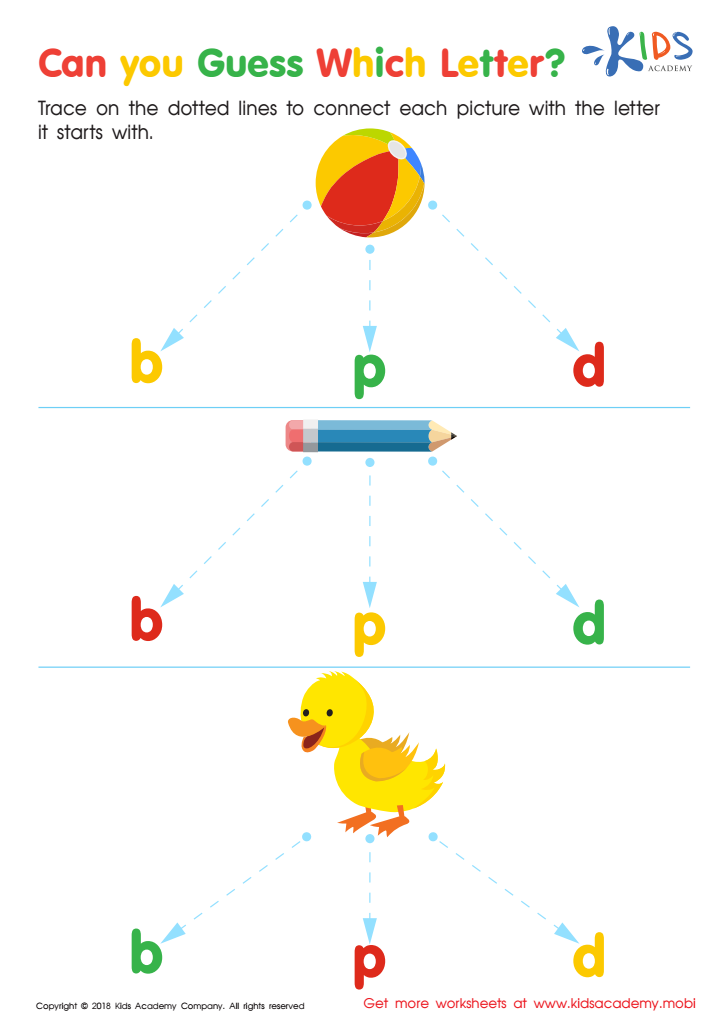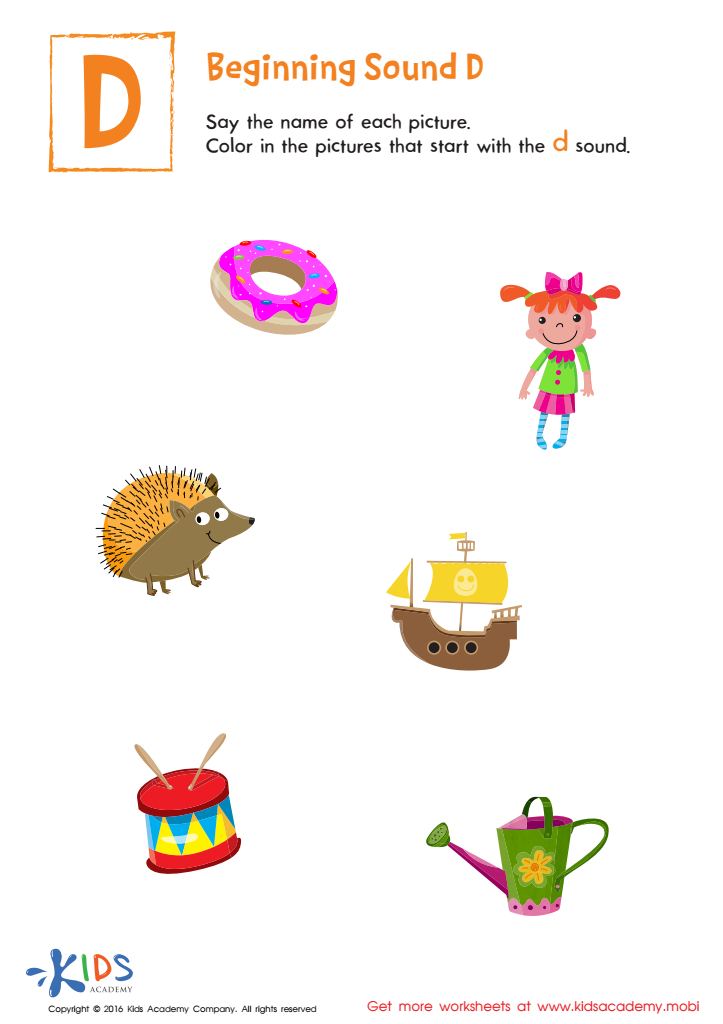Vocabulary expansion Normal Beginning Sounds Worksheets for Ages 4-8
5 filtered results
-
From - To
Enhance your child's vocabulary with our engaging Normal Beginning Sounds Worksheets, specially designed for ages 4-8! These fun, interactive worksheets help young learners identify and associate letters with their corresponding sounds, building essential reading skills. Each activity is crafted to stimulate their interest and promote comprehensive vocabulary expansion through playful exercises. Kids will explore various words and contexts, enhancing their language abilities while having fun. Perfect for home or classroom use, our worksheets support creative learning styles and encourage children to love reading and language. Download now and watch your child's vocabulary flourish with confidence!


Beginning Blends: "Bl" Words Worksheet


Words with sound h Reading Worksheet


Can you Guess Which Letter? Worksheet


Words with sound f Reading Worksheet


Beginning Sound D Worksheet
Vocabulary expansion, particularly with normal beginning sounds, is essential for children ages 4-8 as it lays the foundation for literacy development. At this critical stage, children are not only acquiring new words but also learning to decode and encode them, which serves as the bedrock for reading and writing skills. By focusing on vocabulary and phonemic awareness, teachers and parents can help children recognize and produce the sounds that correspond with letters, facilitating smoother reading experiences.
Early mastery of beginning sounds supports children's ability to categorize words and influences their spelling, pronunciation, and overall comprehension. Engaging in activities that promote sound recognition can foster a love for language and reading, enhancing cognitive skills like critical thinking and problem-solving.
Moreover, a robust vocabulary improves a child’s ability to express themselves, which in turn shapes their confidence in social settings and academic environments. Research shows that strong vocabulary skills correlate with long-term academic success.
Therefore, investing time in vocabulary expansion and sound recognition during these formative years can significantly enhance a child’s educational journey, benefiting their overall development and setting them up for a lifetime of learning opportunities.
 Assign to My Students
Assign to My Students




















